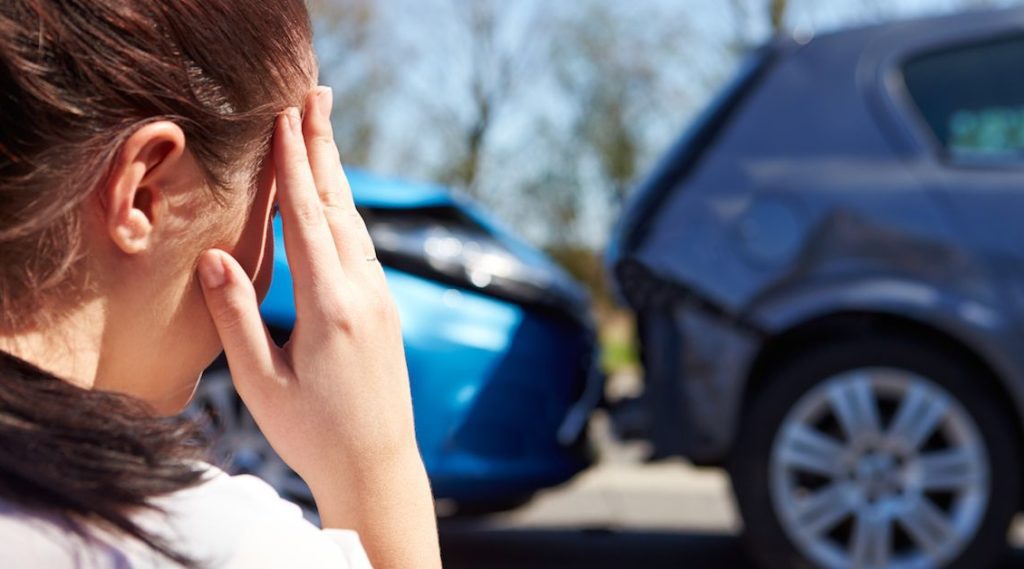
When you are involved in a serious car accident, seeing a doctor should be your number one priority. You need to obtain a comprehensive diagnosis, and you need to begin necessary medical treatment immediately.
Critically, this means more than seeking treatment for your physical injuries. Car accidents can cause severe psychological trauma as well, and seeing a psychologist or psychiatrist after a collision can be essential to making a full recovery. Here are seven examples of psychological problems that drivers and passengers commonly experience after being involved in traumatic vehicle collisions:
7 Psychological Problems Commonly Experienced by Drivers and Passengers
1. Depression
Being involved in a car accident is known to trigger depression for certain individuals. Additionally, if you were living with depression before the accident, the trauma-induced symptoms you experienced as a result of the accident could make your depression worse.
The American Academy of Family Physicians (AAFP) recommends that car accident victims who experience the following symptoms should see a doctor promptly:
- Difficulty eating or sleeping
- Feelings that disrupt your daily life
- Alcohol or drug use as a coping mechanism
- Thoughts of self-harm or harming others
- Not starting to feel better as time moves on
2. Insomnia
Difficulty sleeping, or insomnia, can be symptomatic of psychological trauma sustained in a car accident as well. It can also be symptomatic of certain types of traumatic brain injuries (TBI), which themselves can lead to harmful psychological effects. Nightmares, restless sleep, and other sleep disturbances can also result from car accidents – and they can often be treated with psychological or psychiatric care.
3. Post-Traumatic Stress Disorder (PTSD)
As explained by the Centers for Disease Control and Prevention (CDC): “Post-traumatic stress disorder (PTSD) is an intense physical and emotional response to thoughts and reminders of the event that last for many weeks or months after the traumatic event. The symptoms of PTSD fall into three broad types: reliving, avoidance, and increased arousal.”
Many car accident victims will experience PTSD symptoms including:
- Flashbacks and nightmares
- Feelings of fear, guilt, or emotional numbness
- Shaking, chills, and other physical symptoms
- Withdrawal and feeling detached or estranged
- Increased irritability and sensitivity to bright lights and loud sounds
4. Anxiety / Confusion
The symptoms of anxiety are similar to those of depression, and anxiety is a common diagnosis among car accident victims of all ages and backgrounds. Confusion is a common psychological symptom as well, which may also be symptomatic of a concussion or other TBI.
5. Hesitancy to Get Behind the Wheel
Individuals who experience PTSD and anxiety following car accidents may also find that they are unable to convince themselves to get back behind the wheel. What used to be an everyday activity now seems like a daunting, dangerous, and perhaps life-risking task. While this may seem like an irrational fear, it has a psychological basis, and there are treatment methodologies that can be used to restore accident victims’ comfort with driving over time.
6. Loss of Affection or Sexual Intimacy
Car accidents can trigger loss of affection and sexual intimacy in several different ways. Depression, anxiety, and PTSD can all decrease your sex drive, as can lack of sleep due to insomnia or nightmares. Accident victims who sustain disfiguring physical injuries will often find it difficult to seek intimacy as well.
7. Loss of Enjoyment of Life
Whether due to depression, anxiety, PTSD, or disabling physical injuries, many car accident victims find it difficult to enjoy life as they once did. Spending time with friends and family may seem to have less meaning, hobbies and activities may seem mundane, and it simply may not be possible to do many of the things that they previously took for granted. As with all of the other types of psychological problems discussed above, loss of enjoyment of life is a very real concern for car accident victims, and it is a type of “non-financial loss” for which financial compensation is available under California law.
What Compensation Is Available to Car Accident Victims in California Who Experience Psychological Problems?
When seeking financial compensation after a car accident, it is essential to have a clear understanding of the physical and psychological effects of your injuries. In California, accident victims are entitled to just compensation for their financial and non-financial losses, and this includes compensation for both the direct costs of psychological treatment and the day-to-day impacts of their psychological trauma. In fact, in most cases, accident victims’ non-financial losses will far exceed their health care expenses. As a result, recovering just compensation will be critical to their long-term coping and recovery.
Request a Free Consultation in Bakersfield
If you have questions about your legal rights after a car accident in Southern California, we encourage you to get in touch with the Law Offices of Mickey Fine. To request a free consultation with an attorney in Bakersfield, please call (661) 333-3333 or tell us how we can help online today.
